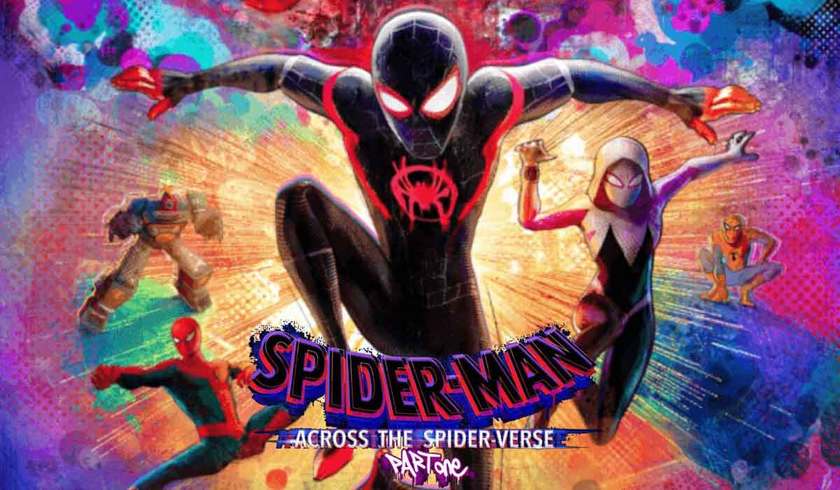Across the Spider-Verse is being called this generation’s Citizen Kane.
Okay, I don’t know that anyone is saying that with sincerity, but it has been lauded as one of the greatest comic book movies ever made. And in a flooded market, I guess that’s saying something. It recently landed on Netflix, so I decided to give it a look. I like Spider-Man, and I like bright colors, so it seemed like a good match for me.
Honestly, I hated it.
I won’t try to summarize the story. You can go elsewhere for that, and it’s so convoluted it would take too long. Just like the movie is too long. It’s an animated film, with teenage protagonists, so it’s clearly marketed to pre-teens and adolescents. Why is Spider-Verse almost two and a half hours? Because it has two heroes.
Two heroes means two journeys, twice as many story beats, double the content.
And still, it’s only half a movie!
Maybe something like Dune can justify that. Here, I think it’s a little much. Screenwriters Lord, Miller, and Callaham probably had fun arranging all the pieces, taking the story apart and putting it back together. I don’t deny that a tremendous amount of thought and passion went into making this movie, and it comes through in every frame. Yet we know by now it’s going to be a case of style or substance. There will be no consequences for the characters. Everyone lives happily ever after.
Everyone lives? Hold on!
This leads into my first criticism of Spider-Verse, that it’s a middle-finger to the fans. The crux of the story is that this reality’s Spider-Man is Miles Morales, who doesn’t believe he must follow the established canon. Up until now, every Spider-Man in every universe has watched his Uncle Ben die, wondered if he accidentally killed Gwen Stacey, and then mourned the death of her father.
It’s just a given that Spidy mustn’t always be a guy named Peter Parker from Queens.
Some fans would beg to differ. And to them, Lord, Miller, and Callaham say, “You’re the bad guy.” Anyone who prefers the established canon, and especially those who believe it’s essential to the character, is part of the problem. Who are you to say Spider-Man can’t be a pregnant, sassy black woman on a motorcycle?
Bigot!
Ultimately, yes, Across the Spider-Verse is made for the next generation of consumers. And the message they’re supposed to learn is not “follow your own path,” but, “Shut up accept what the media machine gives you or you’re a bad person.” Story doesn’t matter. Tradition doesn’t matter. Canon can be flipped on its head at the drop of a hat. But if that’s the case, if we live as if we’re in a multiverse ourselves, everything is as meaningless and inconsequential as this sugar-rush, fever dream, of a movie.
I’ll go so far as to say that Spider-Verse has the potential to corrupt young minds.
Let’s take it one step further. Miles wants to avoid the preordained journey of his life and the other Spider-Men. He wants a life where no one ever has to lose anyone they love. That’s a childish worldview and sounds eerily familiar. For years now we’ve been so afraid of dying from a cold that we’ve stopped living. Only those who are truly at peace with their own mortality and willing to live in the reality of life and loss, have remained sane. The Spider-Man story has always been a tragedy, where actions have inevitable consequences and sometimes they’re good, sometimes they’re bad, but they’re always a part of making Peter Parker (yes, Peter Parker) into a wiser, more compassionate person.
The difficult thing in his life isn’t the costumed villains. It’s the things everyone knows and has to confront at one time or another.
And this movie lies to tell us a kinder story.
Honestly, if I had kids, I wouldn’t let them watch this. The lies are so sweet and so subtle, I think it will warp many young minds. Additionally, it’s insulting to the fans. Citizen Kane? Not even close.

























